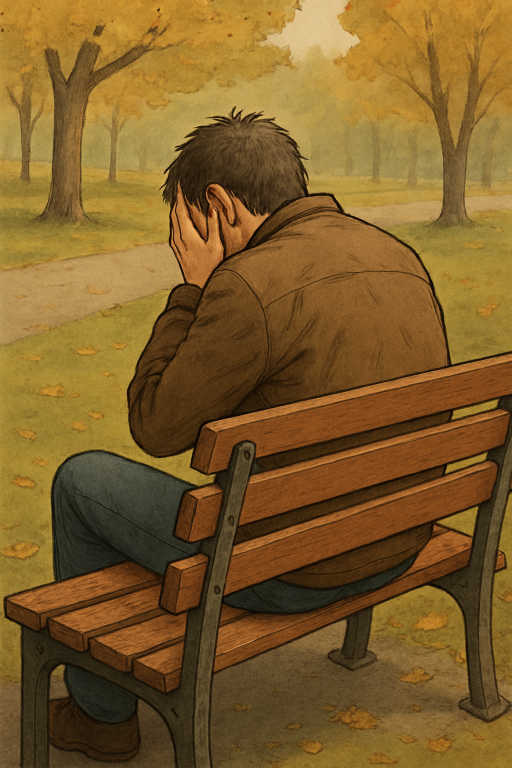
Image generated with the assistance of ChatGPT
The Empty Words of the Gossiper: A Universal Story
I have blogged now and again about the subject of of Gossip and slander. It gets a considerable amount visitors which indicates many are hurting out there. So, I return to this matter.
Gossipers wear many masks—some colourful, some clever, some cunning—but beneath each is the same crooked smile. Across languages and cultures, the act of speaking ill of others behind closed doors (or wide-open mouths) has a universally negative connotation. Whether passed on in whispers or laughter, gossip’s damage is rarely denied, only disguised.
In Urdu, the word khabarcheen captures the essence of a “news-spreader”—but it is not the noble herald of truth. Rather, the khabarcheen is a figure of mistrust, lurking in social corners with ears pricked and mouth eager. In Cuban Spanish, the phrase Radio Bemba—“lip radio”—offers a biting metaphor: our mouths become unwelcome broadcasters, tuned into the private lives of others and transmitting with no regard for truth or tenderness. The names change, but the ugliness stays.
Even in the warmth of friendship or familial settings, gossip sneaks in during sobremesa, the Spanish term for that leisurely time after a meal when stories are shared. Yet how quickly sweetness sours. The shift from connection to cruelty is subtle, like honey left too long on the tongue.
Gossip rarely presents itself as evil. Like shemomedjamo, the Georgian word for “I accidentally ate the whole thing,” it is indulgence disguised as innocence. One might begin with a simple observation—harmless, surely—and before long, the feast of someone else’s misfortunes is consumed with relish.
Children are taught early to beware of the sharp tongue. Snow White’s downfall is plotted not through swords but through whispers—“Who is the fairest of them all?” The Queen’s envy finds voice long before it finds poison. In The Emperor’s New Clothes, it is not just the emperor who is mocked, but an entire society complicit in falsehood, gossiping behind closed doors rather than speaking with courage.
The brothers Grimm were moral cartographers, warning of wolves not only in forests but also in hearts. Little Red Riding Hood is taught to beware the stranger—but in many ways, the more insidious danger lies in the idle chatter that leads her off her path, that lulls her into complacency.
Gossip is the wolf in slippers.
In Hinglish, we call it badmouthing, a hybrid term that bridges two cultures, neither of which approves of it. In Inuit, iktsuarpok describes the anticipation of someone’s arrival—a word not for gossip, but akin to it in the way we itch for updates, unable to sit still until the latest scandal walks through the door. We act as though we await news, but often we await blood.
Even languages known for restraint, like Swedish, cloak criticism in civility. Lagom, meaning “just the right amount,” suggests balance and moderation—but someone who gossips disturbs this harmony. They upset the balance of the room, the respect in the air. In Japanese, wabi-sabi reminds us to accept the imperfections of others. Gossip is its antithesis: it rejects grace and replaces it with scrutiny.
From Easter Island, we have tingo, meaning to slowly borrow things from a neighbour and never return them. It mirrors gossip’s theft: taking someone’s reputation, piece by piece, and never giving it back.
Even in drag culture, where humour and drama dance hand in hand, the word kiki—a gathering for laughter and gossip—is only joyful until someone becomes the punchline. The smile fades when it is your name under their tongue.
Gossip
is a virus disguised as a voice.
It is smoke from a fire you didn’t light—yet it chokes you all the same.
It is a feather pillow torn open in the wind—impossible to gather once
released.
The Bible itself warns that the gossiper isolates themselves by losing close friends.
“A
perverse person stirs up conflict, and a gossip separates close friends.” (Proverbs
16:28)
The Hebrew tongue calls the gossiper a rachil, literally a merchant—peddling information for social currency. It is telling that gossip is treated like trade: a transactional act, not a relational one.
Every culture knows it. Every language finds a word for it. And every word is, whether wrapped in humour or habit, an ugly one. There is no beautiful term for gossip, because gossip is, at heart, the betrayal of beauty. It mocks all that is good. It fractures trust. It takes what is private and parades it as entertainment.
As a child I was told, “If you don’t have something nice to say, don’t say anything at all.” A nursery saying, but a profoundly grown-up truth.
Because in the end, the tongue can set fire to a forest (James 3:5), and we must choose—daily, deliberately—whether we will be arsonists or architects.
Make the world a better place and walk away from those who gossip. When we listen to them, we reward them and it becomes their addiction.
